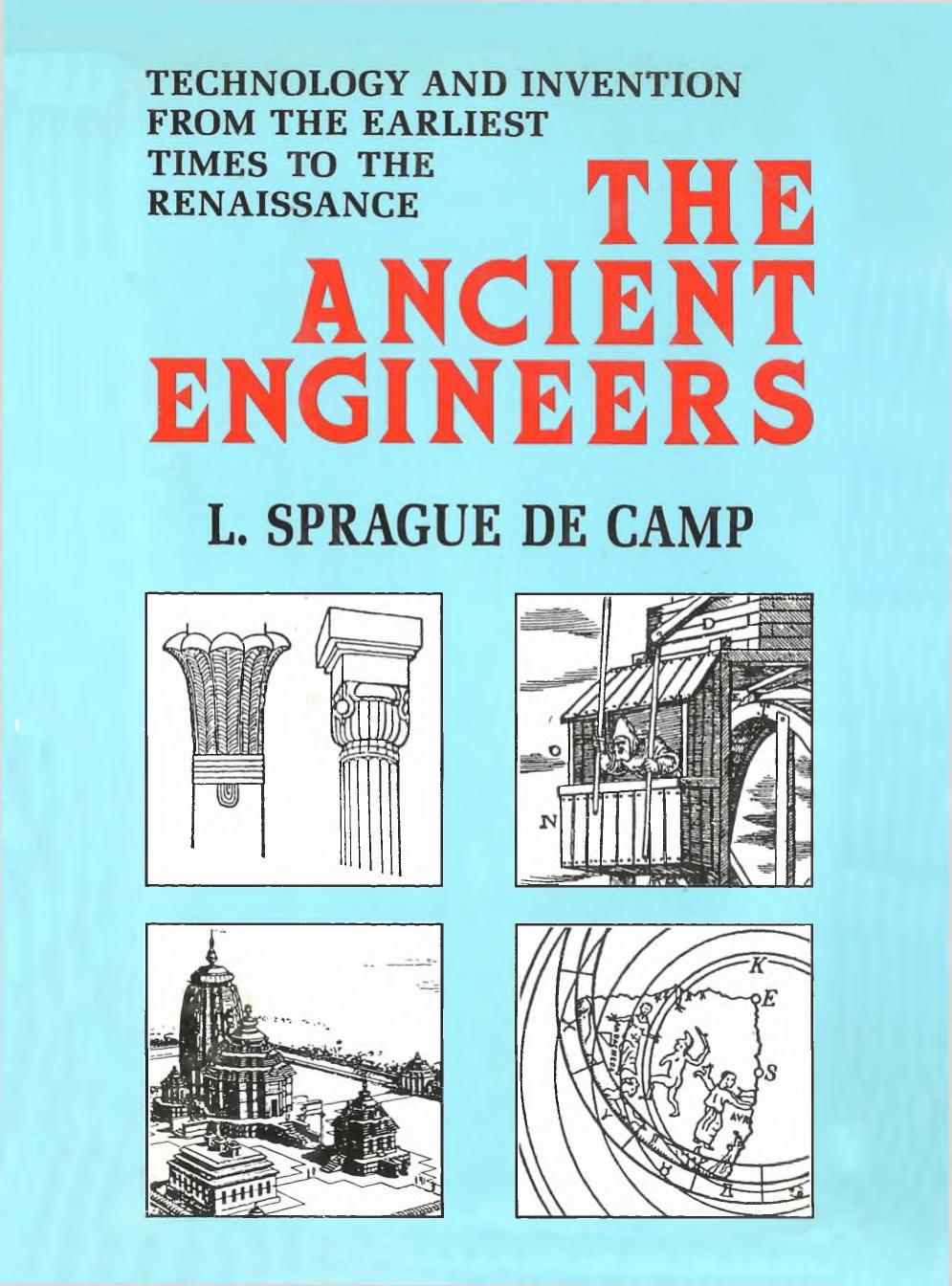The Ancient Engineers by L. Sprague De Camp

Author:L. Sprague De Camp
Language: eng
Format: epub, pdf
Published: 2013-05-19T16:00:00+00:00
THE LATER ROMAN ENGINEERS
SEVEN
In the final century of the Republic, Rome expanded swiftly, gobbling up all the other nations of the Inner Sea. At the same time the nation was convulsed by ferocious civil wars among rival politicians, who butchered their opponents by tens of thousands and piled pyramids of heads m the Forum. Nobody heeded the Roman Constitution any more; an ambitious man cared less for the rules of political advancement than for control of troops by which he could impose his will.
In the —40s, the most gifted of these politician-adventurers, Gaius Julius Caesar, crushed his opponents, the party of Pompeius. Less than a year after he had attained supreme power in Rome, however, Caesar was murdered (—44) by diehard republicans. After another round of civil war, Caesar’s great-nephew succeeded to the murdered dictator’s power. Originally named Gaius Octavius, this youth changed his name, as customary, to Gaius Julius Caesar Octavianus1 when his great-uncle adopted him in —45.
In —27, having in his turn liquidated his enemies, Octavianus took the name or title of Augustus, together with a number of Republican offices. Although in theory the constitution of the Republic remained in force, in fact the Republic had ended and the Empire had begun. The title of the early emperors was Princeps or “first citizen,” so that the early Empire is properly called the Principate.
Augustus’ forty-year reign was a time of unprecedented peace and prosperity. Trade routes stitched the Mediterranean. Goods and gifted men poured into Rome, which became the world’s most magnificent city, while Roman roads, law, and citizenship were bit by bit extended to the provinces. Beyond the frontiers, the barbarians were not yet a serious threat, although the Germans wiped out one Roman army that strayed too far into their somber forests.
Slavery reached vast proportions. In Italy, the number of slaves approached or perhaps even exceeded that of free men. A proposal in the Senate to make the slaves wear distinctive dress was hastily squelched when somebody pointed out that “It would be dangerous to show the wretches how numerous they really were.”2
In later centuries, as the Empire ceased to expand, one of the main sources of slaves—conquest—dried up, and the freeing of slaves was easy, common, and socially approved. Hence the number of slaves declined, while the law gave them more and more protection. At the same time, the lot of the poor free worker worsened as more restrictions were clamped upon him. Consequently, at the end of the Western Empire, there was little to choose between the lot of the slave and that of the free worker.
The wealth and peace of the early Empire, the lust of the first emperors for glory-by-building, and the abundance of cheap labor combined to foster a great surge in the construction of public works and the practice of engineering.
The most eminent engineer and builder of the Roman world, after Appius Claudius Crassus, was Marcus Vipsanius Agrippa (—63 to —12). Bom into an obscure Roman family, he studied at Apollonia, a Greek city on the Adriatic coast opposite the heel of Italy.
Download
This site does not store any files on its server. We only index and link to content provided by other sites. Please contact the content providers to delete copyright contents if any and email us, we'll remove relevant links or contents immediately.
| Baha'i | Cults |
| Demonology & Satanism | Eckankar |
| Egyptian Book of the Dead | Freemasonry |
| Messianic Judaism | Mysticism |
| Scientology | Theism |
| Tribal & Ethnic | Unitarian Universalism |
The Four Agreements by Don Miguel Ruiz(6745)
Breaking Free by Rachel Jeffs(4216)
The Hatha Yoga Pradipika (Translated) by Svatmarama(3329)
120 Days of Sodom by Marquis de Sade(3264)
Member of the Family by Dianne Lake(2352)
The Tao of Physics by Fritjof Capra(2272)
The Psychedelic Gospels: The Secret History of Hallucinogens in Christianity by Jerry B. Brown(2156)
The Road to Jonestown by Jeff Guinn(2063)
Going Clear: Scientology, Hollywood, and the Prison of Belief by Lawrence Wright(1981)
Going Clear by Lawrence Wright(1963)
Uriel's Machine by Christopher Knight(1898)
The Grand Grimoire: The Red Dragon by Author Unknown(1807)
The Gnostic Gospel of St. Thomas by Tau Malachi(1794)
Key to the Sacred Pattern: The Untold Story of Rennes-le-Chateau by Henry Lincoln(1630)
Animal Speak by Ted Andrews(1619)
The Malloreon: Book 02 - King of the Murgos by David Eddings(1589)
Waco by David Thibodeau & Leon Whiteson & Aviva Layton(1558)
The New World Order Book by Nick Redfern(1548)
The Secret History of Freemasonry by Paul Naudon(1492)
